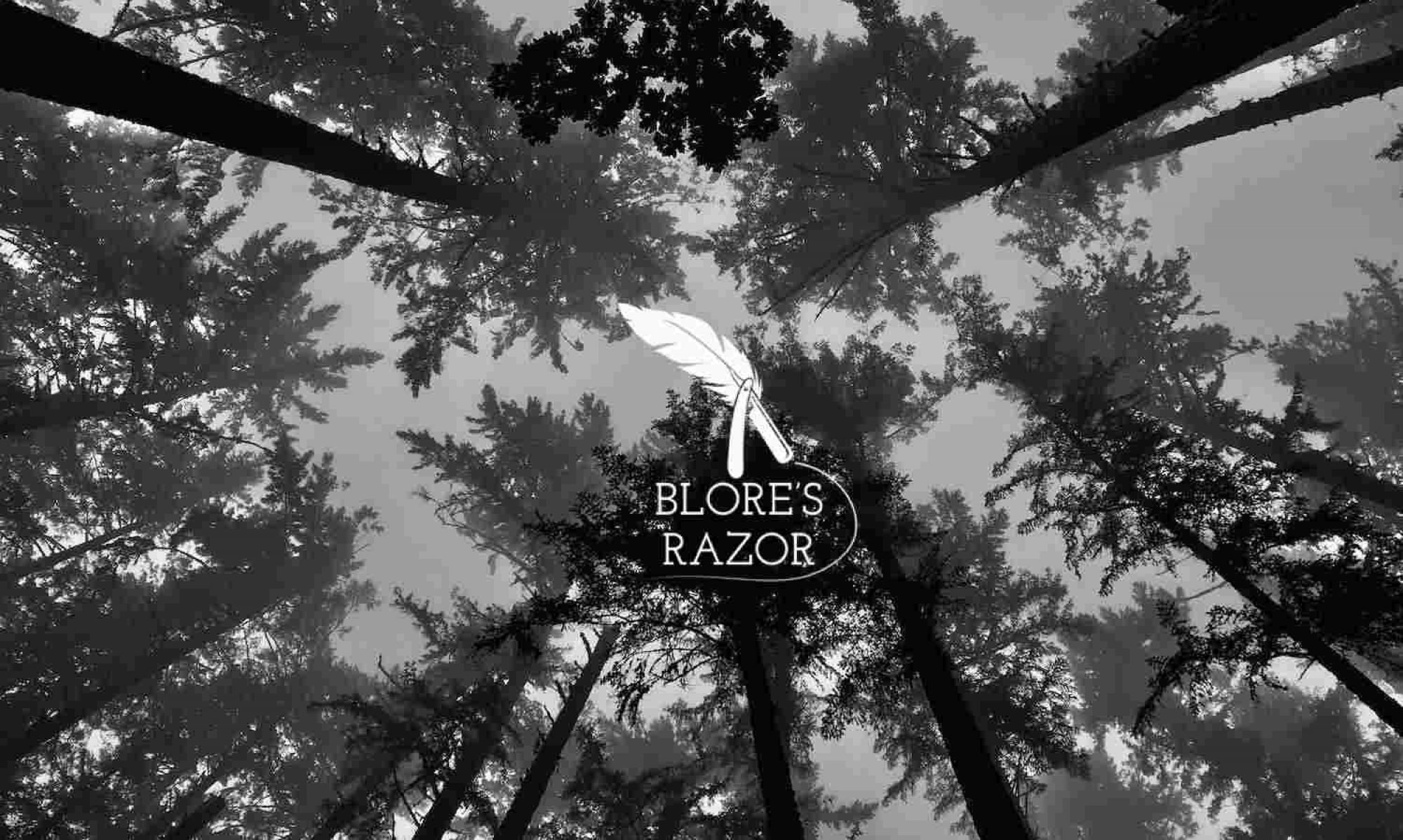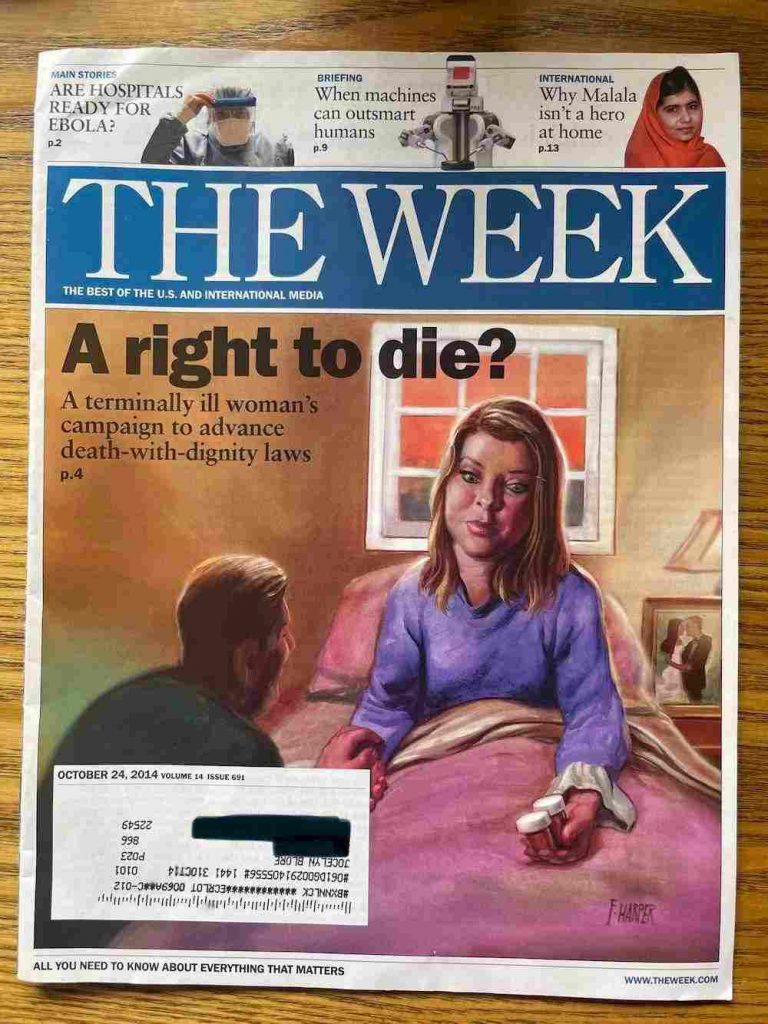With every passing year, my mortality creeps steadily more into my thoughts.
A throbbing ache in one leg—a blood clot?
Cramping in my intestines—stomach cancer?
A rush of pain to my temples—an aneurysm?
These discomforts eventually pass and my morbid imagination abates until the next ailment starts the cycle anew.
At 37, I don’t know how I’m going to die. But if I’m lucky, someday, I want to end my own life.
Don’t get me wrong: I’m far from suicidal. I’m healthy and active. I’m grateful to have an abundance of friends and a wonderful family. I just believe that euthanasia is a human right. I find peace in the idea that I can someday choose to end my life when the suffering becomes too great with no prospect of improvement.
Brittany Diaz (formerly Maynard) was a friend of mine at Berkeley. After being diagnosed with terminal brain cancer, she became an internationally famous activist for the Death With Dignity Movement. She had moved with her husband to Oregon—one of nine states with legalized (and highly regulated) euthanasia. She had recently gotten married and earned a graduate degree, but the disease gave her debilitating pain and seizures. She tried surgery and other medical interventions to no avail. Shortly before her 30th birthday, on November 1, 2014, she ended her own life surrounded by those she loved.
Brittany’s decision to use her tragic diagnosis to educate the world took immense courage, strength, and love. Under the same circumstances, many would despair or withdraw. In her last message to me on October 8, she wrote, “DWD is a healthcare right for the terminally ill that warrants education, advocacy, and discussion.“ I fully agree.
I don’t take my support for assisted suicide lightly. I know how it impacts loved ones firsthand. My grandfather killed himself when I was in college. It was a shock because he was relatively healthy and had recently lost a lot of weight. Like many folks left in death’s wake, I asked myself why I didn’t call, write, or visit more—as if there was something I could have done to change his mind. Although I felt undone in those years following his decision, I began to see his actions differently: he chose that day. It was the same day at the same age his father had died. He had been planning his death, and who was I to deny him that right?
I used to believe that taking one’s own life was a supremely selfish act, but is it? Why shouldn’t people of sound minds have control over when they make their Grand Exits? And why do we insist on dragging out people’s lives as long as possible?
Doctors witness firsthand how excruciating (and expensive) lifesaving interventions can be. It’s not surprising that they are more likely than the general public to request DNR (Do Not Resuscitate) orders in their personal medical care. One’s quality of life can be severely compromised after aggressive end-of-life treatments. Like a majority of physicians, I would opt for a DNR. (That said, those who want to undergo any and all medical treatments should be free to do so. I’m 100 percent in support of bodily autonomy.)
There’s a beauty in choosing when and how to let go. Like abortion, when Death with Dignity is denied to people, suicide doesn’t go away—it just gets pushed into a lonelier, darker underground. Many Americans are surprised to learn, for example, that the leading cause of gun deaths in the U.S. isn’t homicide. It’s suicide.
But what if those people had other options? What if they didn’t feel the need to end their lives in the shadows? What if they could speak with counselors and doctors about their feelings? And if they decided to go through with it, what if choosing death were treated differently?
Dying is inevitable, and having as much control as possible over one’s death is a fundamental human right. I want to embrace death as Brittany did: with open eyes, grace, courage, and love. I want it to be a party. I want to be listening to Nina Simone, Bill Withers, and Allen Toussaint. I want a belly full of Thai food. Perhaps I’ll have someone to assist my transition—a death doula if I can find the right person.
If it were up to me, my Grand Exit would be 100 years from now. Maybe it will be. My second choice would follow one of my favorite Irish toasts: “May you die warm in your bed at 95, shot by a jealous spouse.” A close third would be at age 107, falling into a volcano while taking a selfie for my mistress.
Who knows how I’ll go, but I hope more people consider the importance of Death with Dignity.



Agree x1000. In my first job out of high school, I was very proud to be working with Dr. Winston Maxwell in the mid-90s, who was a vocal advocate for Oregon’s Death with Dignity Act and was able to learn a lot about it back then.
I found the scene in Midsommer when the elderly couple jumped off the cliff quite relaxing. If I could know the time and manner of my death like that, it would open up my schedule!
Thanks, Cam. We need more folks like Dr. Maxwell to educate Americans about DWD! Also, that scene in Midsommer was gnarly but thought-provoking